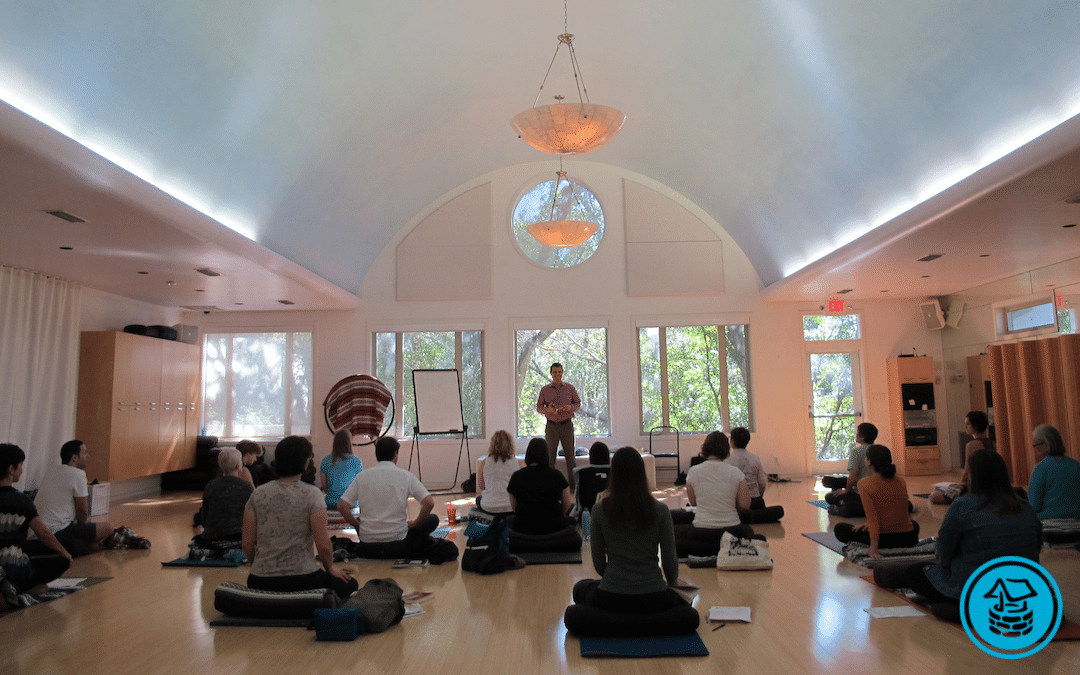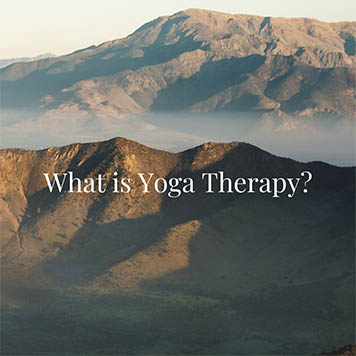The past year has been one of growth for the Yoga Well Institute. We’ve been exploring different ways to achieve our vision and continue to help our community live a purposeful and satisfying life through Yoga. Read a short overview on some of the new programs we’ve implemented and some past concepts we’ve reinforced.
Yoga Well Institute’s Vision
The Yoga Well Institute envisions a safe, supportive and caring community in Yoga, where people experience sustainable transformation, come out of physical and emotional suffering, and learn how to help others do the same thing.
We are working to carry out this vision in two primary ways: one-to-one student-teacher relationships & experiential learning supported by information.
Traditional, One-to-One Student-Teacher Relationships
First, we want to support a network of one-to-one student-teacher relationships. Traditionally, the transmission of Yoga has always been first and foremost about individual students receiving personalized, one-to-one guidance for a daily practice within the context of a long term student-teacher relationship. This method was at the heart of how our primary teacher Mr. TKV Desikachar taught. To continue this tradition, Yoga Well provides a free matching service for students. Interested students are interviewed to learn their interests, histories, capacities, and preferences (i.e. gender, age, location, etc.). We then introduce prospective students to experienced teachers who we think are a good match based on the results of the interview. These are introductions, not assignments, and sometimes a few introductions are necessary to get the right match.
Student-Teacher Support
We offer support structures for the student-teacher relationship. We provide a Student Liaison to help both students and teachers navigate difficulties that may arise in the process of these individualized studies. This service is free of charge. Our Student Liaison has decades of experience helping people navigate mentor relationships. Both students and teachers are encouraged to contact the Student Liaison for help anytime a difficulty arises in the student-teacher relationship. Sometimes, support means facilitating a change of teacher if it becomes apparent that the relationship is not working for either the teacher or the student.
Experiential Learning Supported by Information
Second, as an educational institute, we aim to provide both informational and experiential opportunities for our students. Since Yoga is an applied science, like music, cooking, dance, etc. simply studying Yoga without experiencing it will never be sufficient to understand Yoga. Study without practice is an empty intellectual exercise. Conversely, practice without study is blind. The practice of Yoga is exponentially more effective and powerful when the information that has accumulated through centuries of practice is studied and understood.
Examples of Experiential Learning
Our Wednesday Morning Meditation is an example of our experiential classes. An object is selected to meditate on and we keep the same object for the entire month (sometimes two) while varying the preparation and structure of the meditations. This creates very different experiences each week, even though the object remains the same. Participants discover how a particular meditation object can be used for different effects. In this way, we’re able to experientially demonstrate the incredible variety of the application of meditation.
Another example is the Application of Meditation. This twice-monthly online class follows Wednesday Morning Meditation. Participants share the experiences they just had in that morning’s meditation as well as the previous week’s. We discuss the structure of the meditations and how they are related or produced the experiences that were just shared. The informational and experiential aspects of meditation are brought together in this educational process.
Additionally, we offer in-depth textual studies. We’ve taught Patañjali’s Yogasūtra many times over, and are currently about one-third of the way through Chapter 3. Because we take a deep dive into these ancient texts, it can take up to 18 months of meeting every week to cover one chapter! But the in-depth exploration of the word-by-word meaning of each sūtra really helps in the understanding of how to apply it in practice, especially the practice of daily life.
Creating More Teachers
Third, we train Yoga Teachers and Yoga Therapists. We offer a 1,008-hour Yoga Therapist Training program–currently, one in Minneapolis and another in Nashville, with plans to begin a third in Berkeley in the Fall of 2020. We have offered several 300-hour Yoga Teacher Training programs in Nashville and Berkeley over the past five years. A major part of all of these trainings is the development of an individual’s personal practice under the guidance of an experienced teacher.
This is What Viniyoga is
The primary purpose of all of these learning opportunities is to support the community of Viniyoga teachers and practitioners in North America. Accordingly, we’ve been reflecting on how best to do that. While the incredible breadth and depth of Viniyoga’s teachings are clear to experienced practitioners of Viniyoga, many Yoga practitioners in the West are unaware of what Viniyoga offers. This is such a paradox because so many practitioners are thirsting for what precisely Viniyoga offers: in-depth teachings that bring together all the different aspects of practice (movement, breathing, meditation, chanting, spirituality, philosophy, daily living, etc.) in a coherent structure that is applied and practiced in daily life!
Our Semesters Program
We know that there is already a community of experienced and knowledgeable Viniyoga teachers in North America. One of our goals at the Yoga Well Institute is to help the community of already established teachers to connect with each other as well as be more findable by interested students. One of the ways that we’re doing that is through our new Semesters program. We have begun offering a few times a year a raft of 8-week classes taught by experienced teachers from around North America.
The content of these classes is wide, everything from āsana course planning to meditation to Āyurveda to Sāmkhya and more. Each class gives the teacher an opportunity to show their expertise in that area while at the same time allowing students who want to go deeper in that area to discover excellent teachers. Ideally, this will develop further into providing opportunities for new students to discover Viniyoga as well as creating opportunities for experienced and knowledgeable practitioners to teach.
So there you have it. That’s a brief overview of what we’re up to at the Yoga Well Institute. We hope to see you soon in the community!



